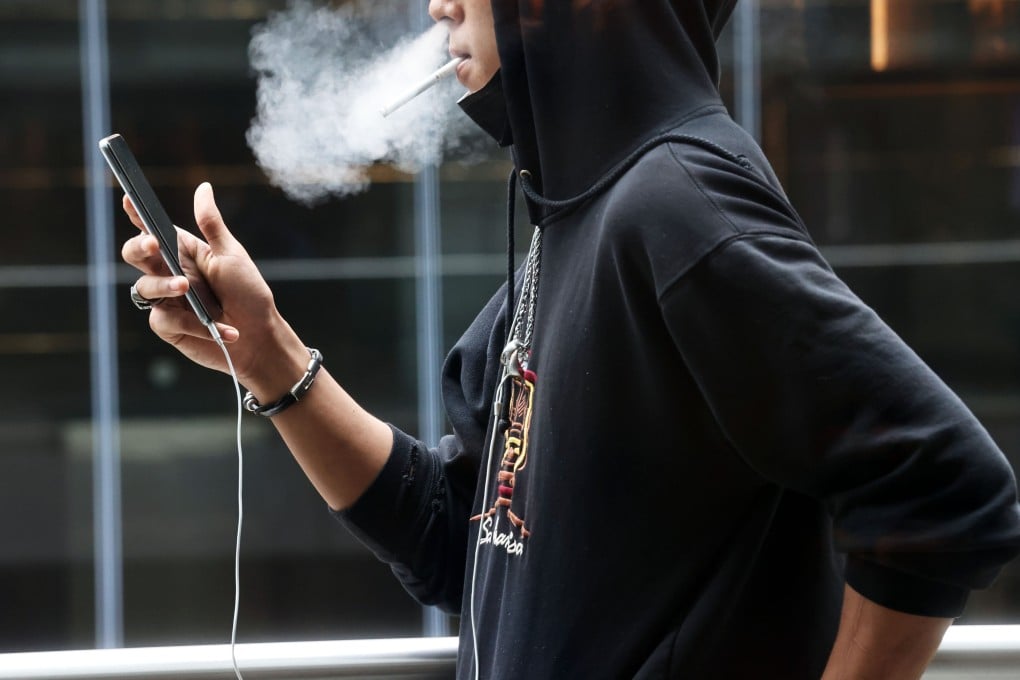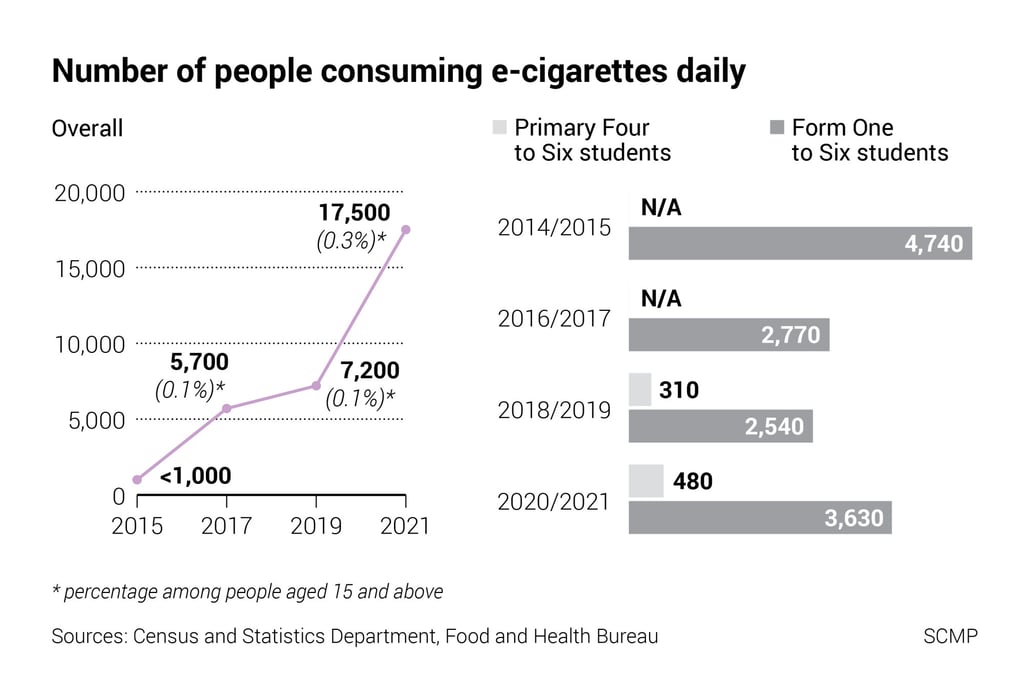Hong Kong mulls drastic measures to further reduce number of smokers, despite record rate drop below 10 per cent
- Health minister Sophia Chan says authorities looking into three-pronged approach in control strategy, including expanding statutory non-smoking areas
- Despite record drop in cigarette smokers, number of residents vaping surged from 7,200 in 2019 to 17,500 last year

Hong Kong is considering more drastic measures to reduce its number of cigarette smokers, even as the figure dropped below 10 per cent, the health minister has revealed.
Authorities revealed on Thursday the proportion of residents who smoked fell to 9.5 per cent last year, dropping from 10.2 per cent in 2019, a decline that puts the government within reach of its goal to cut tobacco use to 7.8 per cent of the population by 2025.
But vaping had increased “significantly” by nearly 1.5 times in the past two years, Secretary for Food and Health Sophia Chan Siu-chee said, a rise she attributed to influence from peers and curiosity among young people.
“The [latest smoking rate] is a new low, and it is the first time we are seeing a single digit since records began,” Chan said. “It shows that the comprehensive tobacco control policies such as legislation, taxation, law enforcement, health education and smoke cessation services, have been effective under the joint efforts of society.”

A household survey conducted by the Census and Statistics Department, which delivered the latest findings, found that the proportion of male smokers dropped from 18.1 per cent in 2019 to 16.7 per cent last year. Significant decreases in rates were also observed among men in age groups of 30-39 and those over 50.